Citrate synthase from the cyanobacterium Synechococcus elongatus is shown to self-assemble into Sierpiński triangles, a finding that opens up the possibility that other naturally occurring molecular-scale fractals exist.
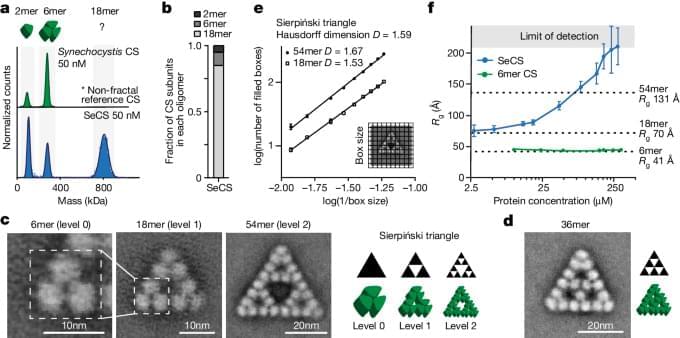

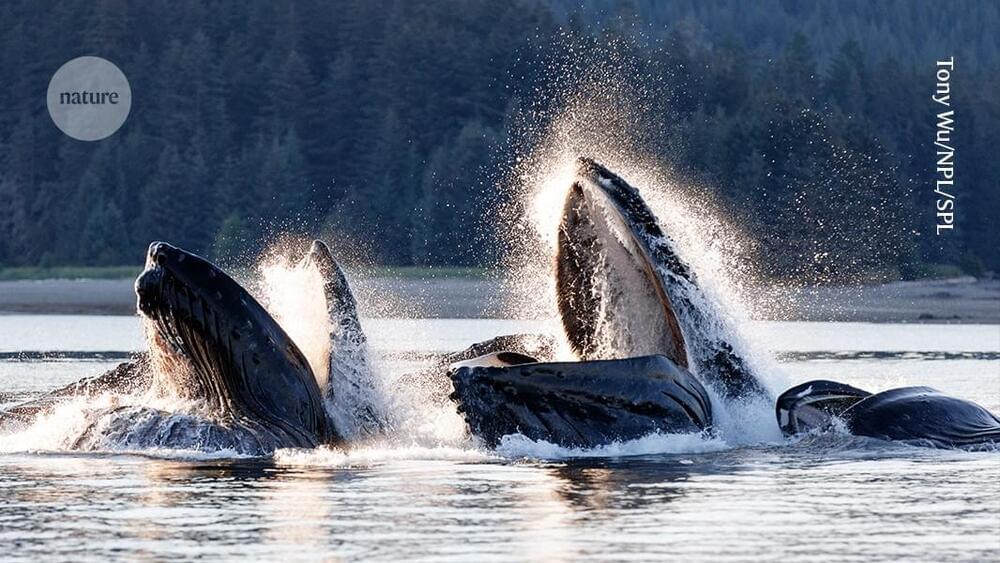
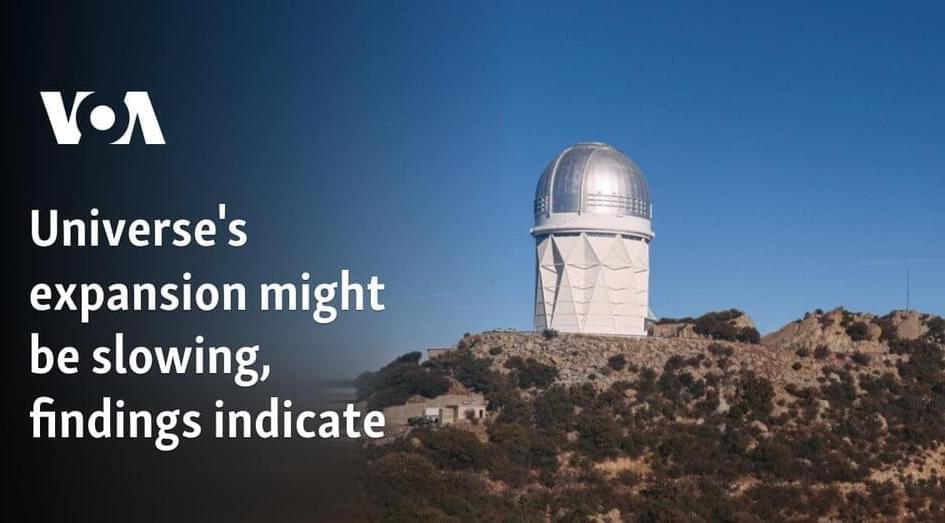
The universe is still expanding at an accelerating rate, but it may have slowed down recently compared with a few billion years ago, early results from the most precise measurement of its evolution yet suggested Thursday.
The preliminary findings are far from confirmed, but if they hold up, it would further deepen the mystery of dark energy — and likely mean there is something important missing in our understanding of the cosmos.
These signals of our universe’s changing speeds were spotted by the Dark Energy Spectroscopic Instrument, or DESI, which is perched atop a telescope at the Kitt Peak National Observatory in the U.S. state of Arizona.
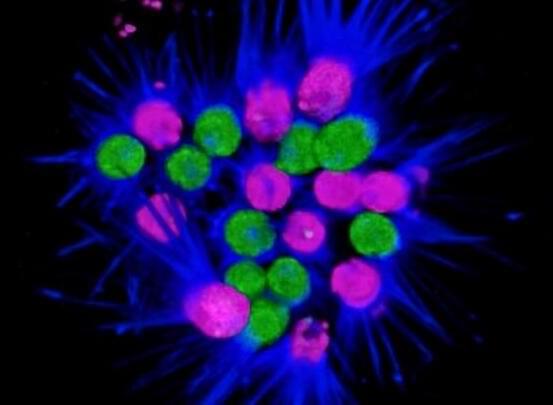
Just when scientists thought they had almost figured out the origins of multicellular life, evolution throws another curveball.
In a serendipitous discovery, a team of researchers has just chanced upon a third type of ‘unconventional’ multicellularity that blends the two kinds we already knew about.
Multicellularity has evolved a staggering 45 times or more across the tree of life. Yet fundamentally, the ancestor of each multicellular lineage relied on just one of two methods — individual cells sticking together as they split, or individual cells that have previously split coming back together.
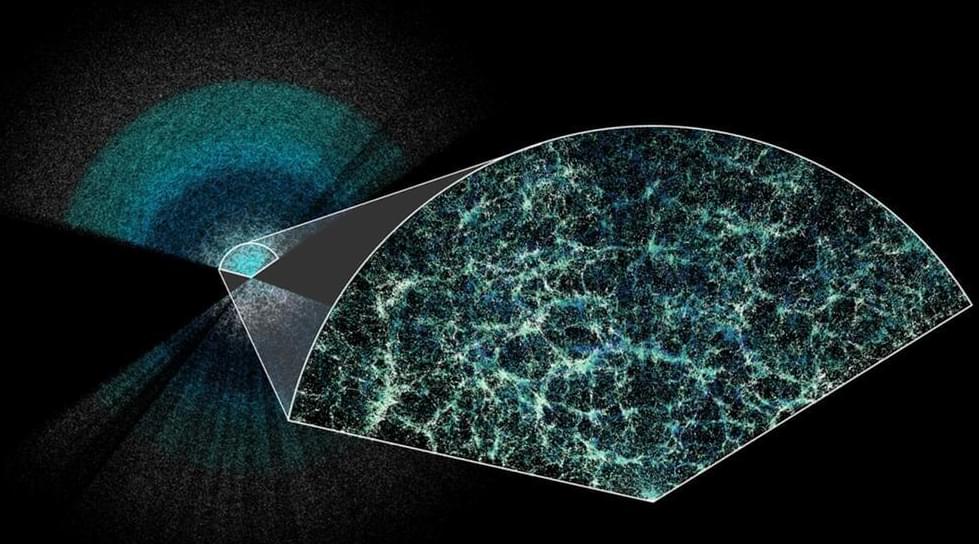
“Gravity pulls matter together, so that when we throw a ball in the air, the Earth’s gravity pulls it down toward the planet,” Mustapha Ishak-Boushaki, a professor of physics in the School of Natural Sciences and Mathematics (NSM) at UT Dallas, and member of the DESI collaboration, said in a statement. “But at the largest scales, the universe acts differently. It’s acting like there is something repulsive pushing the universe apart and accelerating its expansion. This is a big mystery, and we are investigating it on several fronts. Is it an unknown dark energy in the universe, or is it a modification of Albert Einstein’s theory of gravity at cosmological scales?”
DESI’s data, however, shows that the universe may have evolved in a way that isn’t quite consistent with the Lambda CDM model, indicating that the effects of dark energy on the universe may have changed since the early days of the cosmos.
“Our results show some interesting deviations from the standard model of the universe that could indicate that dark energy is evolving over time,” Ishak-Boushaki said. “The more data we collect, the better equipped we will be to determine whether this finding holds. With more data, we might identify different explanations for the result we observe or confirm it. If it persists, such a result will shed some light on what is causing cosmic acceleration and provide a huge step in understanding the evolution of our universe.”
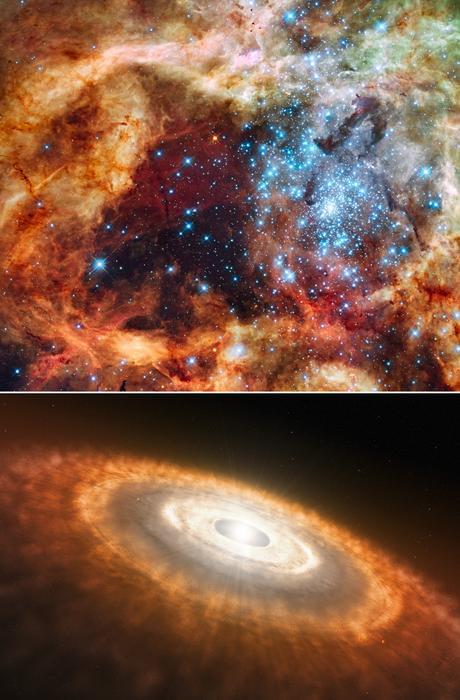
After three years of collecting scores of data on hundreds of stars, the ULLYSES (Ultraviolet Legacy Library of Young Stars as Essential Standards) survey conducted by NASA’s Hubble Space Telescope officially ended in December 2023, culminating in 220 total stars examined during the survey on data regarding their size, distance from Earth, temperature, chemical characteristics, and rotational speed. Additionally, ULYYSES also contains another 275 stars from the Hubble archive, providing researchers with several decades of new stellar data and holds the potential to help astronomers gain new insights into stellar formation and evolution throughout the universe.
Hubble image of a star-forming region known as the Tarantula Nebula, which contains massive, young blue stars, which was observed during the ULYYSES survey (top panel). Artist’s illustration of a cooler, redder, young star smaller than our Sun that is still gathering material from its planet-forming disk (bottom panel). (Credit: NASA, ESA, STScI, Francesco Paresce (INAF-IASF Bologna), Robert O’Connell (UVA), SOC-WFC3, ESO)
“I believe the ULLYSES project will be transformative, impacting overall astrophysics – from exoplanets, to the effects of massive stars on galaxy evolution, to understanding the earliest stages of the evolving universe,” said Dr. Julia Roman-Duval, who is Implementation Team Lead for ULLYSES and an Associate Astronomer at the Space Telescope Science Institute (STScI). “Aside from the specific goals of the program, the stellar data can also be used in fields of astrophysics in ways we can’t yet imagine.”

Wires and cables are not the only things that can get entangled: Plants, fungi, and bacteria can all exhibit filamentous or branching growth patterns that eventually become entangled too. Previous work with nonliving materials demonstrated that entanglement can produce unique and desirable material properties, but achieving entanglement requires meticulously engineered material structure and geometry. It has been unclear if the same rules apply to organisms, which, unlike nonliving systems, develop through a process of progressive growth. Through a blend of experiments and simulations, we show that growth easily produces entanglement.
Specifically, we find that treelike growth leads to branch arrangements that cannot be disassembled without breaking or deforming branches. Further, entanglement via growth is possible for a wide range of geometries. In fact, it appears to be largely insensitive to the geometry of branched trees but instead depends sensitively on how long the organism can keep growing. In other words, growing branched trees can entangle with almost any geometry if they keep growing for a long-enough time.
Entanglement via growth appears to be largely distinct from, and easier to achieve than, entanglement of nonliving materials. These observations may in part account for the broad prevalence of entanglement in biological systems, as well as inform recent experiments that observed the rapid evolution of entanglement, though much still remains to be discovered.

Utilizing data from NASA’s James Webb Space Telescope, scientists have unveiled the earliest starlight spectra, revealing low-mass galaxies’ central role in the universe’s dawn. Credit: SciTechDaily.com.
Groundbreaking JWST observations reveal the pivotal role of low-mass galaxies in the early universe’s reionization, challenging existing cosmic evolution theories.
Scientists working with data from NASA’s James Webb Space Telescope (JWST) have obtained the first full spectra of some of the earliest starlight in the universe. The images provide the clearest picture yet of very low-mass, newborn galaxies, created less than a billion years after the Big Bang, and suggest the tiny galaxies are central to the cosmic origin story.
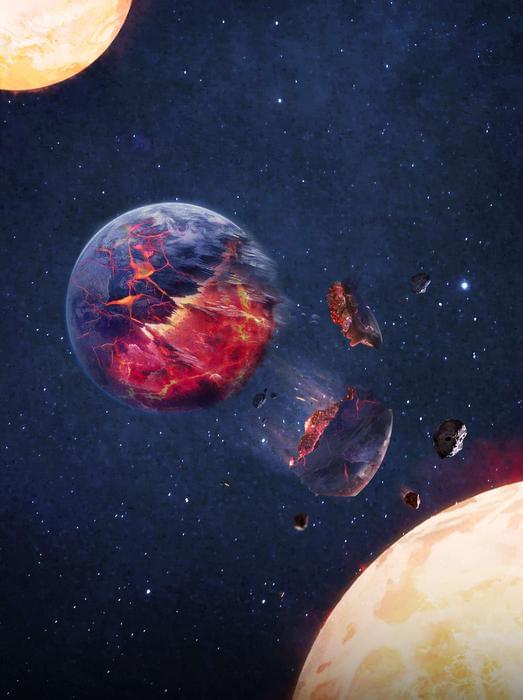
Dr. Fan Liu: “Thanks to this very high precision analysis, we can see chemical differences between the twins. This provides very strong evidence that one of the stars has swallowed planets or planetary material and changed its composition.”
Can stars eat planets? This is what a recent study published in Nature hopes to address as a team of international researchers led by ASTRO 3D researchers investigated how some pairs of twin stars possess different compositions, which contradicts longstanding theories that they should possess similar compositions, hence the same twin stars. However, astronomers now hypothesize the compositional differences could be due to one of the twin stars devouring planets that orbit them. This study holds the potential to help astronomers better understand the formation and evolution of planetary systems and the mechanisms behind them, as well.
For the study, the team used a combination of the 6.5-meter Magellan Telescope, the European Southern Observatory’s Very Large Telescope, and the 10-meter Keck Telescope to collect data on 91 twin stars to ascertain their chemical compositions, and specifically the similarity of their compositions. In the end, the team discovered that approximately eight percent (7−8 twin stars) exhibited differences in their compositions, with the team hypothesizing that this was due to one of the stars ingesting one of their orbiting planets. Additionally, they found that the differing pairs were all main sequence stars, meaning they’re average-aged and conducting their fusion at their full potential. For context, our Sun is a main sequence star.

Researchers report the birth of a ~2-billion-year-old orphan gene following #planetary #oxygenation, and how this humble beginning shaped the global planetary #ecosystem.
From so simple, a beginning: https://oup.silverchair-cdn.com/UI/app/svg/i.svg?versionId=192134
Abstract. Molecular innovations within key metabolisms can have profound impacts on element cycling and ecological distribution. Yet, much of the molecular foundations of early evolved enzymes and metabolisms are unknown. Here, we bring one such mystery to relief by probing the birth and evolution of the G-subunit protein, an integral component of certain members of the nitrogenase family, the only enzymes capable of biological nitrogen fixation. The G-subunit is a Paleoproterozoic-age orphan protein that appears more than 1 billion years after the origin of nitrogenases. We show that the G-subunit arose with novel nitrogenase metal dependence and the ecological expansion of nitrogen-fixing microbes following the transition in enviromental metal availabilities and atmospheric oxygenation that began ∼2.5 billion years ago. We identify molecular features that suggest early G-subunit proteins mediated cofactor or protein interactions required for novel metal dependency, priming ancient nitrogenases and their hosts to exploit these newly diversified geochemical environments. We further examined the degree of functional specialization in G-subunit evolution with extant and ancestral homologs using laboratory reconstruction experiments. Our results indicate that permanent recruitment of the orphan protein depended on the prior establishment of conserved molecular features and showcase how contingent evolutionary novelties might shape ecologically important microbial innovations.